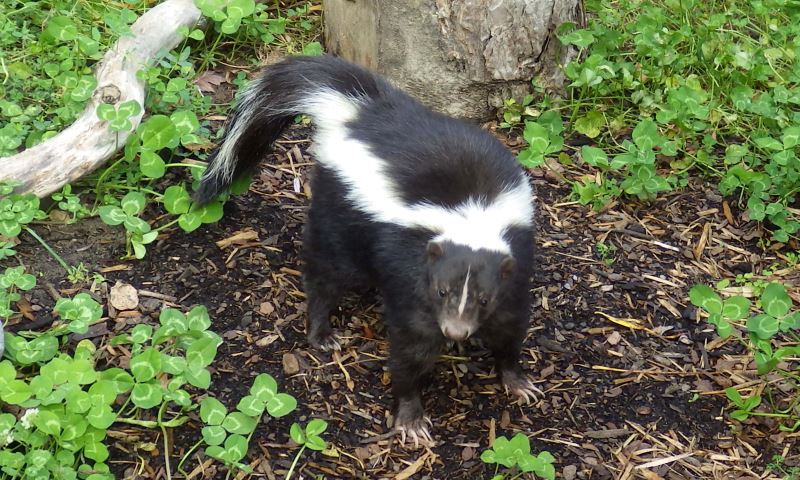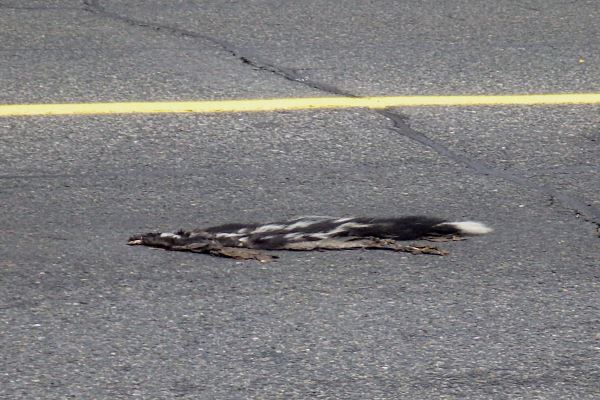Striped skunks are one of the many species of skunk. Like their cousins the polecats, skunks are most famous for their ability to produce a most unpleasant stinking excretion as their primary defense mechanism against predators. Skunks are in fact related to polecats and weasels and they all are placed in the superfamily Musteloidea.

Striped skunk (Mephitis mephitis) in the Kids Zoo exhibit of the Toronto Zoo.
In the wild striped skunks eat mostly insects and other small animals with fruits and nuts on the side.
Striped skunks have domesticated breeds which make very good pets if raised by their owners from the time they are babies. In many ways their care is similar to caring for a domestic dog.
Surprisingly there are tons of laws, city bylaws, and other regulations governing whether or not one can keep a skunk, and if a permit is needed to keep a skunk and similar things. In North America, particularly because many skunks are considered to be native species, it varies greatly from jurisdiction to jurisdiction, and while you can keep a pet skunk in some states in the US it is illegal to own one in most of Canada. In some places one might face less red tape if one wishes to get a pet tiger or some truly exotic animal that the local powers that be just neglected to regulate.
Also animal welfare regulations might prevent the owner from removing the scent glands from a pet skunk in which case the owners have to deal with the possibility that if their pets get nervous or feel threatened they might spray their disgusting scent all over the place.

Skunk killed on a road in Toronto.
Something that one can see all too often.
Skunks tend to try to defend themselves against perceived threats by spraying their scent which makes most animals with any sense of smell shy away. Unfortunately it does not work against cars and pickup trucks, perhaps that is why so many skunks end up as roadkill.
Further Readings:
Striped skunk Facts Sheet – Canadian Geographic Kids!
Mephitis mephitis on the Animal Diversity Web.
Skunk on Wikipedia.
Skunks as Pets:
The Basics of Caring for Pet Skunks on About.com.
Pet skunk basic care information on justskunks.com.
Skunks as pets on Wikipedia.


